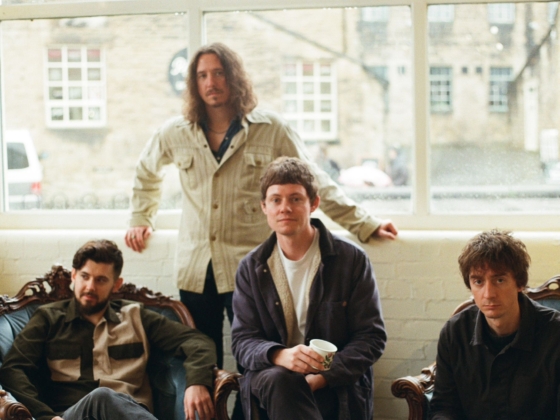Singer-songwriter Trevor Sensor has released A Few Tears of Eros.
Having already released the Southern rock stomper “Heaven’s A Big Disgrace”, the new album is “an exploration of modern love in a dejected and atomised world.”
“We’ve lost patience for just about everything, including love,” says Sensor. “A lot of songs I hear deal with the beginnings of the aftermath of romance, but hardly what happens in between. The yearning and heartbreak are all fine and well, but you get older and become involved in the thralls of hum-drum life building. What lurks beneath the surfaces of happily-ever-afters is what interests me.”
Nowhere is this more clear on the single “Heaven’s A Big Disgrace,” which takes on the concept of what’s really in a happily-ever-after to its logical conclusion as it tells the story of a starlet’s fall from fame and grace, wrapped up in catch rock-stomping sensibilities.
The grand nature of the perils and pitfalls of life and love immediately makes itself known on A Few Tears Of Eros, as the opener “When I Had The Gall” sets off the LP with some real Hollywood balladry.
It wouldn’t be amiss on a blockbuster soundtrack, potentially accompanying a scene of a starlet walking through the rain and contemplating how her life got to this point–potentially even the one Sensor discusses on “Heaven’s A Big Disgrace.”
No stranger to genre-hopping, Sensor seems to have modelled the third track, “Schmuck For Life,” after Revolver-era Beatles, with the dubby, bright guitars and organ to really complete the vibe.
This middle-era Beatles vibe resurfaces on “Now That I’m Naked,” though it’s much more piano-heavy and vocally gritty, making it unmistakably a Trevor Sensor creation.
It’s quite a tonal switch to track, “The Farm”, which is much more low-key and features a more classic country guitar vibe, plus Sensor’s trademark sandpaper vocals taking a gentle step back for a much softer tone – at least until he sings the words “I’m just trying to get free,” and the bridge introduces an absolutely wailing guitar solo.
Much softer again is the Elliott Smith-style “Thomas Park,” which sees Sensor sing “now I know the nature of your pain,” alongside finger-picked acoustic guitar and sweet, gentle harmonies. The song eschews loudness and ends suddenly, echoing in its own absence, a sweet but definitively sad moment in the middle of the album.
Switching moods again is the track “When The War Is Done,” which feels like – and presumably is meant to be played at–the end of a night in some smoky bar, with brass accompaniment warbling in the background as the piano plays its melancholic notes and Sensor’s vocals half-screech the words “what’s the point of anything?/tell me, who’s our God?/I just needed some money/for the life I want.”
“When The War Is Done” seems to tell the story of someone who’s beyond caring about morals, convincing themselves that the ends justify the means as long as they get what they need. It’s heart-wrenching, for sure, and contrasts tonally with the next track, “Trampin’,” which, while musically similar, carries much more energy and instead follows a character who searches everywhere for pleasure, using their charm to take whatever they want.
Determined to cement his reputation as a musical chameleon, Sensor shifts to a funk-infused style on “New York Mourning,” a timeless tale of doing whatever it takes to get what you want, all while a lyrical jazz guitar steals the spotlight.
Rounding out the rest of the album are the ballad-style tracks “Take All My Love” and album closer “Keepin’ By Your Door,” both telling different stories of heartbreak.
“Take All My Love” reflects on the difficulty of caring for someone who resists it, while “Keepin’ By Your Door” finds Sensor ruminating on the uneasy feeling of not quite belonging with another person, despite deep love for them.
The standout track at the album’s end, however, is “Too Many Years of Drinkin’ and Cryin’,” a particularly bright moment for Sensor’s idiosyncratic vocals as he sings, “I don’t believe in forgiveness / too many years of drinkin’ and cryin’.”
In all, A Few Tears Of Eros is an extremely able, genre-brave effort from Trevor Sensor, with a heavy heaping of darkness and past pains woven throughout to make a lovely picture of the impatience of humanity.









